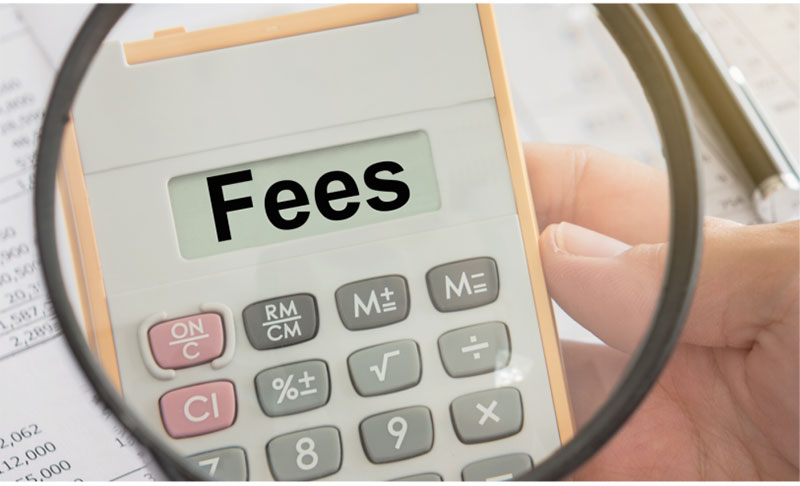A Comprehensive Guide On How You Can Avoid Overdraft Fees
Triston Martin
Oct 06, 2023
It's easy to get caught up in the moment and spend money you don't have. Unfortunately, this can lead to overdraft fees and other financial woes. Luckily, there are ways to avoid these fees if you know what to look for.
Let's take a look at how you can stay on top of your finances and prevent those pesky overdraft fees from ruining your day.
What Is An Overdraft Fee?
An overdraft fee is a fee associated with withdrawing more funds from an account that is available in that account. It's also known as an insufficient funds (NSF) fee or overdraft charge. This type of fee is most commonly seen when customers overspend on a checking account, such as writing a check for an amount greater than the balance in their account.
In this case, the bank will cover the difference up to a certain amount and charge a flat rate or percentage-based overdraft fee. Overdraft fees can be costly, mainly if multiple transactions occur over several days before overdrawn accounts are replenished with additional funds. To avoid these fees, you, as a customer, should always stay vigilant about properly tracking your bank balances.
An Example Of an Overdraft Fee
Overdraft fees are common for bank customers, but it’s essential to understand the ins and outs of the fee. An overdraft fee is assessed when you use your debit card or checks to withdraw or spend more money than what is available in your checking account. However, the fee isn’t a one-size-fits-all situation because banks can set different amounts for overdraft fees.
Generally, they range anywhere from $10 to $35-40 per overdraft transaction—triggering an even higher cost if multiple transactions result in numerous charges.
For example, suppose you have $100 in your bank account but need $150 for an urgent expense. Now the bank will loan you that $50 you are short and put a $40 overdraft fee on it. In that case, you have to pay the bank in return a total of $50+40= $90.
What’s worse, these fees are often entirely avoidable simply by using an online calculator to help accurately budget finances and ensure you always have enough funds in your checking account.

Ways To Avoid Overdraft Fee
Overdraft fees can be a painful reminder that you must keep track of your finances. But avoiding them with a few simple tips and tricks is possible. Let’s look at different ways to start avoiding overdraft fees today.
Create a Budget
Creating a budget is one of the simplest, most effective ways to keep track of your finances and avoid overdraft fees. A budget allows you to plan and allocate funds for each month so that you only end up spending what you have available in your account.
When creating a budget, make sure that you factor in all of your expenses (fixed and variable), so there won't be any surprises when it comes time to pay the bills. Moreover, set aside some monthly money for savings to create an emergency fund for unexpected costs or financial difficulties.
Monitor Your Balance Regularly
It's also important to monitor your balance regularly—preferably daily—so that you know exactly how much money is available in your account at any given time. By doing this, you'll be able to adjust your spending accordingly and avoid overspending or incurring unnecessary fees due to an insufficient balance in your account.
Additionally, many banks offer tools like text alerts or mobile apps that can help you keep tabs on your credit so that you're always aware of where things stand financially.
Sign Up for Overdraft Protection Services
Another way to protect yourself from overdraft fees is by signing up for an overdraft protection service from your bank or credit union. These services will typically link two accounts together (usually a checking account and a savings account) so that if one of them goes into the negative, funds will automatically be transferred from the other account to cover the deficit.
This way, even if you accidentally spend too much money or need to remember an upcoming bill payment, there's still a safety net in place just in case something goes wrong.
Monitor Your Spending Habits
One of the best ways to stay on top of your finances is to pay attention to your spending habits. Keep track of all outgoing payments, such as rent, bills, and loan repayments, so you know exactly how much money you have left in the bank each month. Additionally, use budgeting apps or software programs to help you keep track of your income and expenses.
Set Up Automatic Alerts
You can set up automatic alerts on most banking websites or apps that will let you know when certain thresholds are reached in your accounts. For example, if you set an alert for $100 in total withdrawals or purchases within a given month, then the alert will remind you when that threshold has been met so that you can adjust accordingly.

Use Cash More Often
When it comes to purchases large and small, consider using cash more often than plastic or digital payments (if possible). This way, there’s no risk of overspending because once the cash runs out, it’s gone until the next payday or another source of funds arrives. It’s also important to remember that some retailers will charge additional fees for debit card use; cash eliminates this fee!
Remember To Transfer Funds Into Savings
Finally, make sure to remember to transfer funds into savings each month so that potential overdraft fees don’t add up while still having money available for emergencies should they arise!
Doing this helps build up financial security and allows money saved to accumulate over time instead of being depleted due to overdraft fees incurred from careless spending habits or banking errors made by others involved in the same account(s).
Final Takeaway
While it may seem daunting at first glance, avoiding overdraft fees doesn’t have to be difficult or overly complicated!
By regularly following these tips and tricks, you can successfully avoid those horrific overdraft fees and always keep your finances in order! It may seem like a lot at first. Still, after creating routines around monitoring your spending habits and setting up alerts as needed, it becomes more manageable and second nature over time.
Financial freedom starts with being proactive about managing your money- so with these tips and some determination, you'll be well on your way toward living debt-free!







